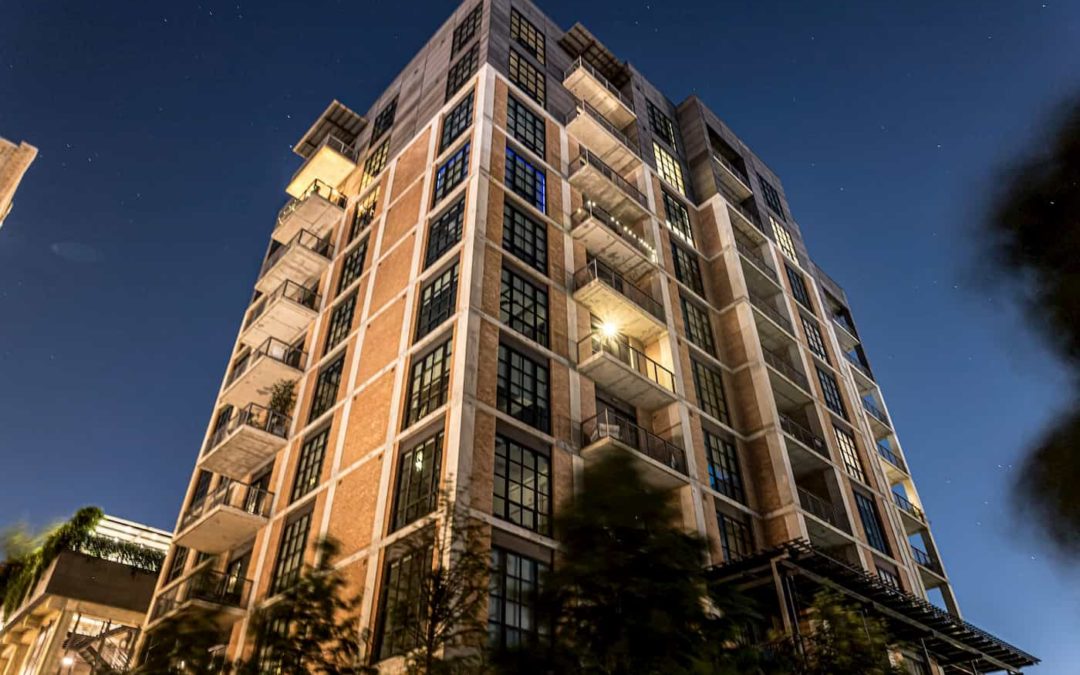Owning a condominium could be a fantastic housing option for many Portlanders. Condos typically require less maintenance and are often located in urban areas, which offers an attractive “walk-friendly” lifestyle. However, when condo owners decide to convert their units to rentals, they face certain hurdles owners of single-family homes don’t. That doesn’t mean it’s impossible to rent out your condo, however. Instead, condo owners must conduct an additional layer of due diligence before making the switch. Here’s how you can get started.
What is a Condominium
First, it’s essential to understand what a condominium is, exactly. A condo is a residence owned in a community building you share with other owners. Condos are different from apartments because they typically include common areas like pools, garages, and outdoor spaces, which all require ongoing management and maintenance. To accomplish this, condo communities elect board members and board presidents. These individuals run an association responsible for setting community policies, managing common areas, and assessing the monthly Home Owner Association (HOA) fees. Those fees cover the cost of maintaining common areas and the building.
Buying a condo means owners agree to live in a community and abide by community rules. As a result, the rental process for condominiums is different than with single-family homes, because the community often sets regulations over how owners can rent their units.
Check Your Condominium Documents
If you’d like to rent your condo, the first step is checking your condominium documents, which outline the association’s rules for every owner. As part of these rules, your association may include regulations governing how owners rent their units. These regulations could take several different forms, including:
- A prohibition against renters. In this circumstance, the condo association bars owners from renting their units.
- A rental threshold. Many condo associations only allow a certain percentage of their owners to rent out their homes.
- Resident requirements. Some associations dictate that owners must live in their condo for a certain amount of time before they’re allowed to rent their unit.
Once you’ve reviewed your association documents, you’ll know if you can convert your unit into a rental.
Tenant Screening May be Different
We’ve talked before about the importance of tenant screening. This process is just as necessary when renting your condo. However, your condo association may impose additional requirements for your potential tenants. These might include age restrictions if you live in a 55 or older community, income requirements, or guidelines on acceptable pets. In some cases, condo boards may even want to interview potential new tenants themselves. So, before you advertise your condo, make sure you understand these requirements, so you’re targeting the right potential tenants and communicating with them clearly and accurately.
As an owner, it’s also your responsibility to communicate association rules to your tenants. If your renter is violating rules against smoking, noise, or other community guidelines, you may face financial or legal consequences imposed by your condo board.
Include HOAs in Cash Flow Analysis
Many single-family homes exist within an HOA that governs common areas like playgrounds and community landscaping. In most cases, however, these HOA fees don’t cover the cost of maintaining individual homes. Condos are different. Not only do HOA fees cover common areas, but they also pay for maintenance to the community building. Many associations also build up a reserve to pay for larger, more expensive maintenance projects as the building ages. As a result, condo HOA fees are usually more significant than single-family HOA fees. Depending on the unit, these fees could be hundreds or thousands of dollars per month.
When performing your rental assessment, it’s essential to include all property costs into your calculation to accurately determine your cash flow. Between the cost of your mortgage payment, taxes, insurance, fees, and a large HOA payment, your condo may not produce the same cash flow as a single-family home. This math might affect your decision or the timing for converting your condominium into a rental.
Check Your Insurance Policy
In most cases, condo owners obtain insurance coverage that’s different from a typical homeowner’s policy. Typically, the condo association purchases a master policy that covers the building and community areas. Individual unit owners then purchase condo policies covering their belongings, any damage that may occur inside the unit, and to protect them against liability. To protect your investment, condo owners who want to convert their units to full-time rentals may need to obtain a landlord or dwelling policy. They should also consider protection against personal liability. To assess your risk level, it’s wise to speak with a qualified insurance broker who can outline all your available options.
Rent Portland Homes by Darla Andrew Knows Condos
If this sounds a little overwhelming, that’s okay. Fortunately, Rent Portland Homes by Darla Andrew can help. Our team has years of experience renting condos. As a result, we knows how to work within association guidelines so you can make the most of your investment. To learn more, fill out our online form for a free rental analysis. Or, you can contact Darla today at (503) 515-3170. Owning a condo is a great investment. With the Rent Portland Homes by Darla Andrew team by your side, you can make it pay off even more.


Recent Comments